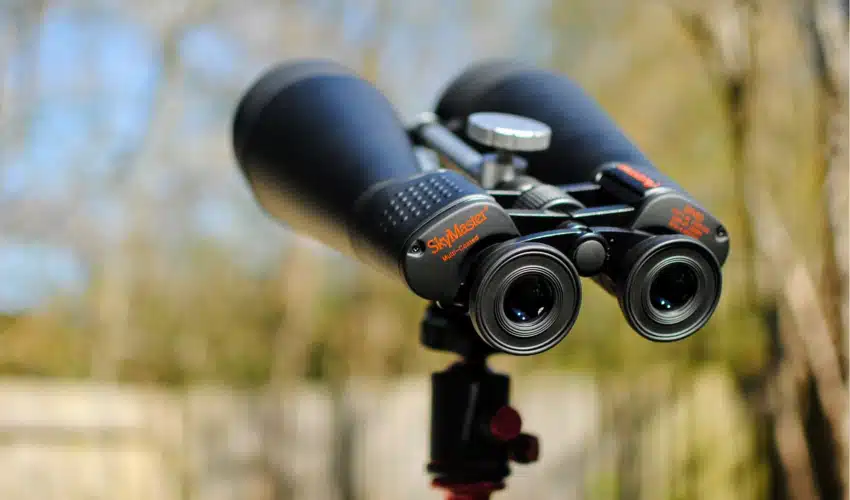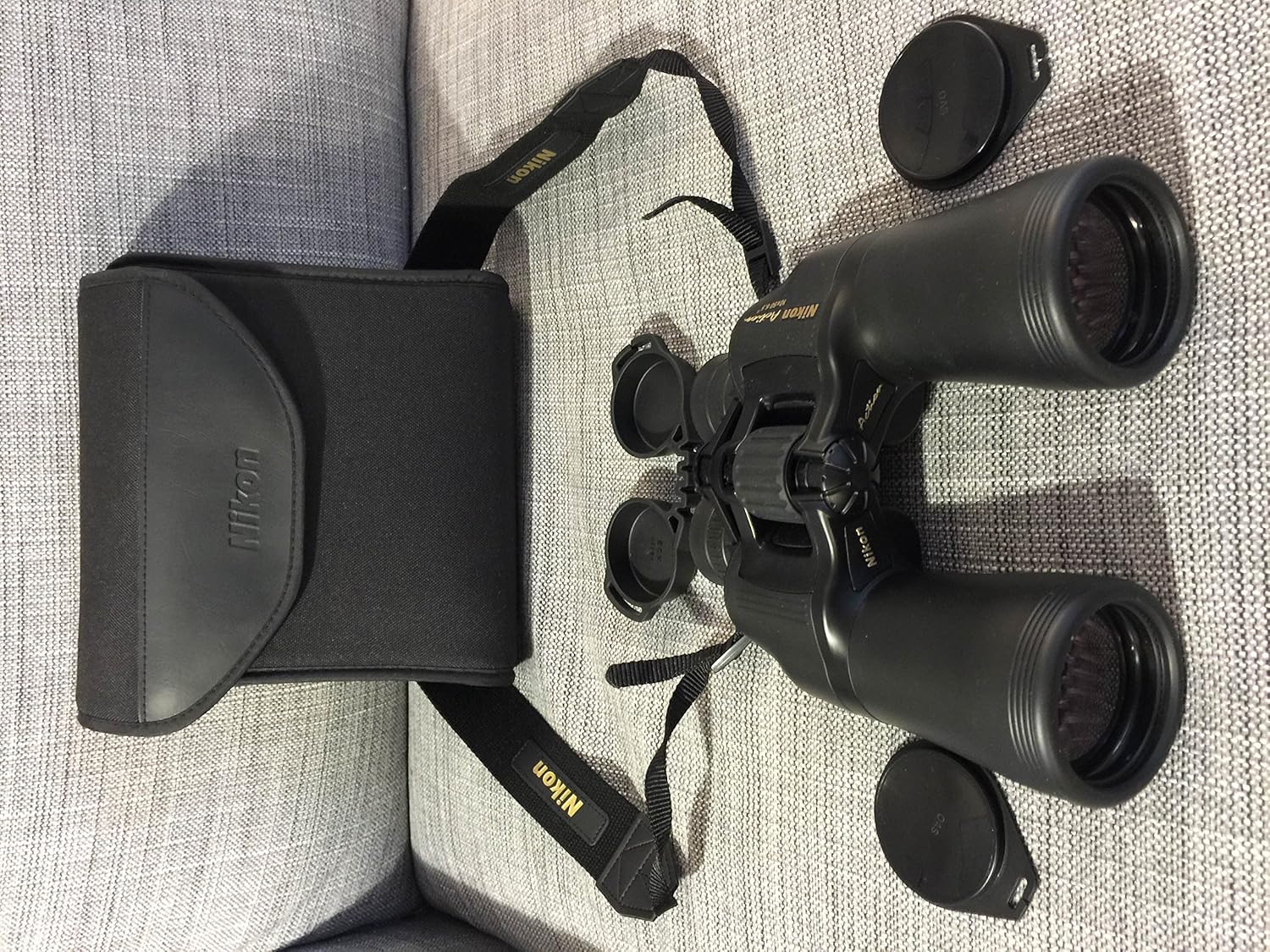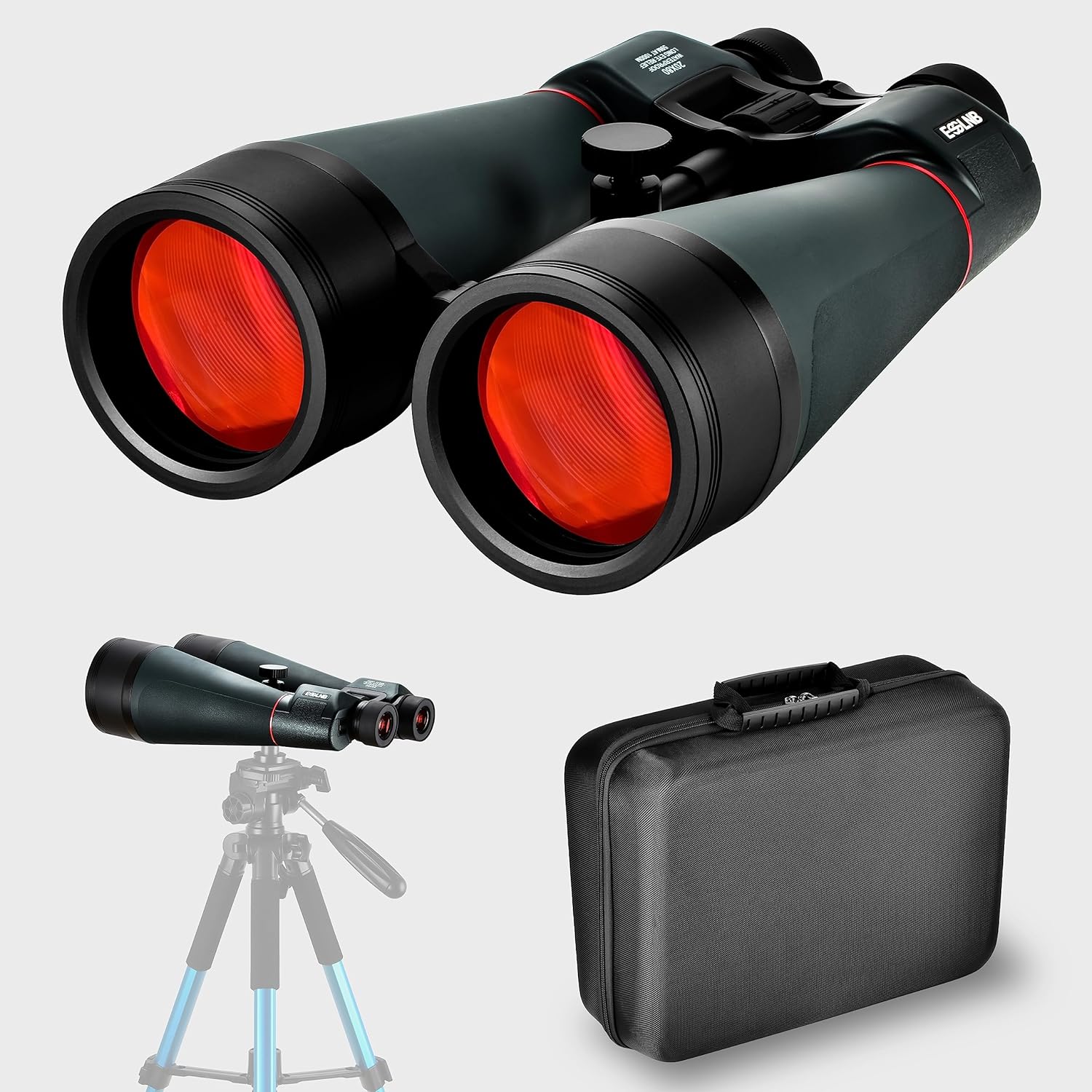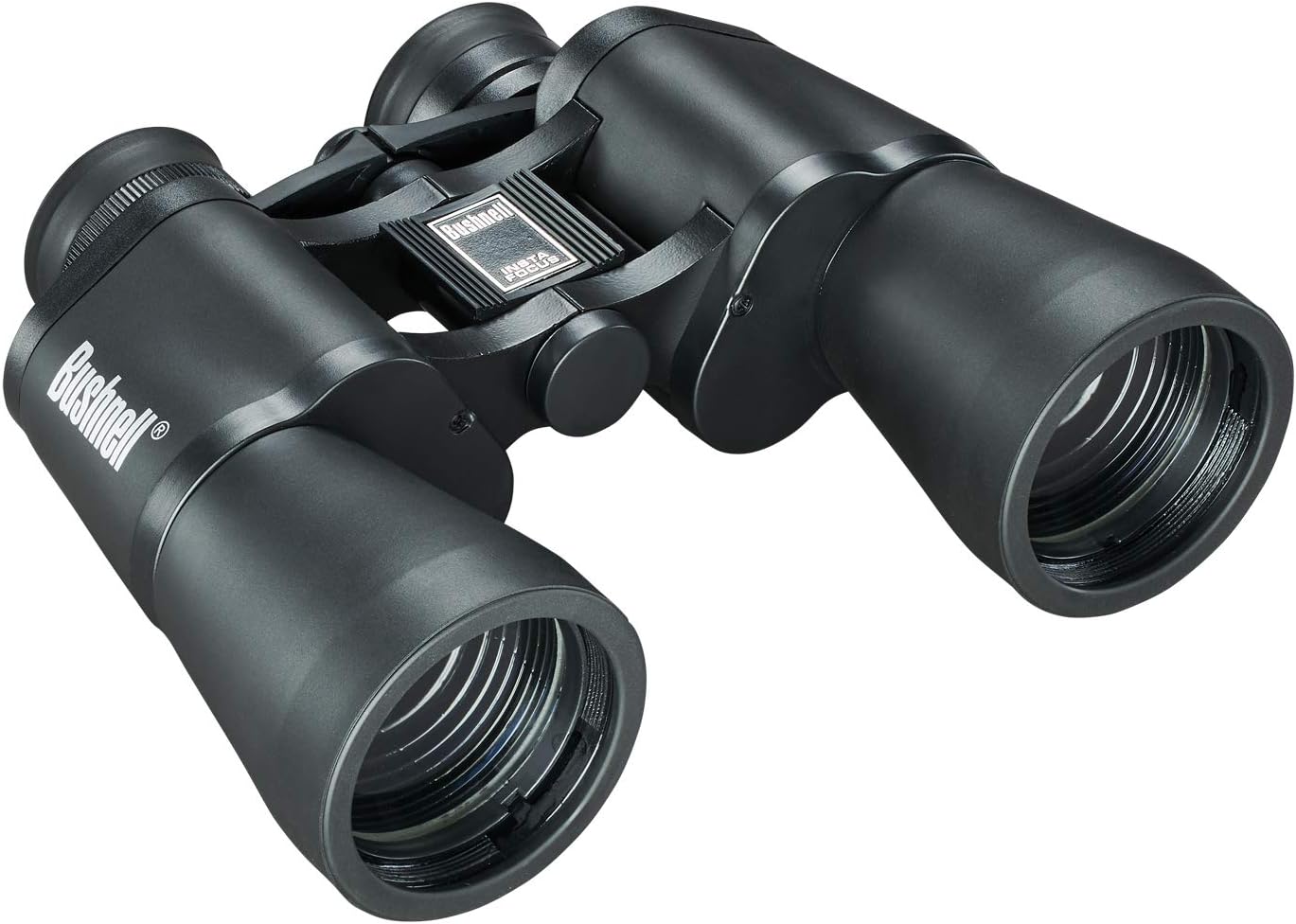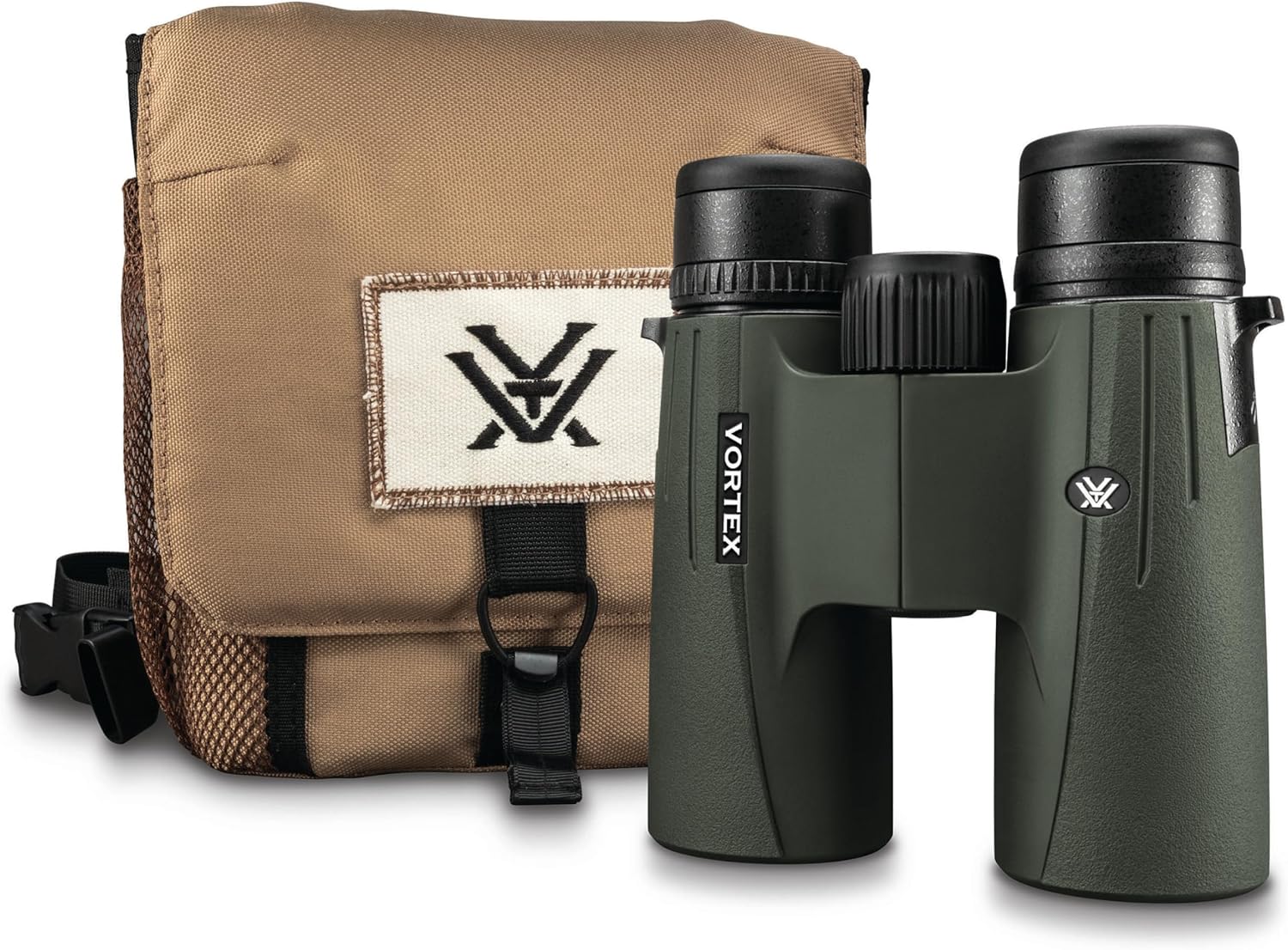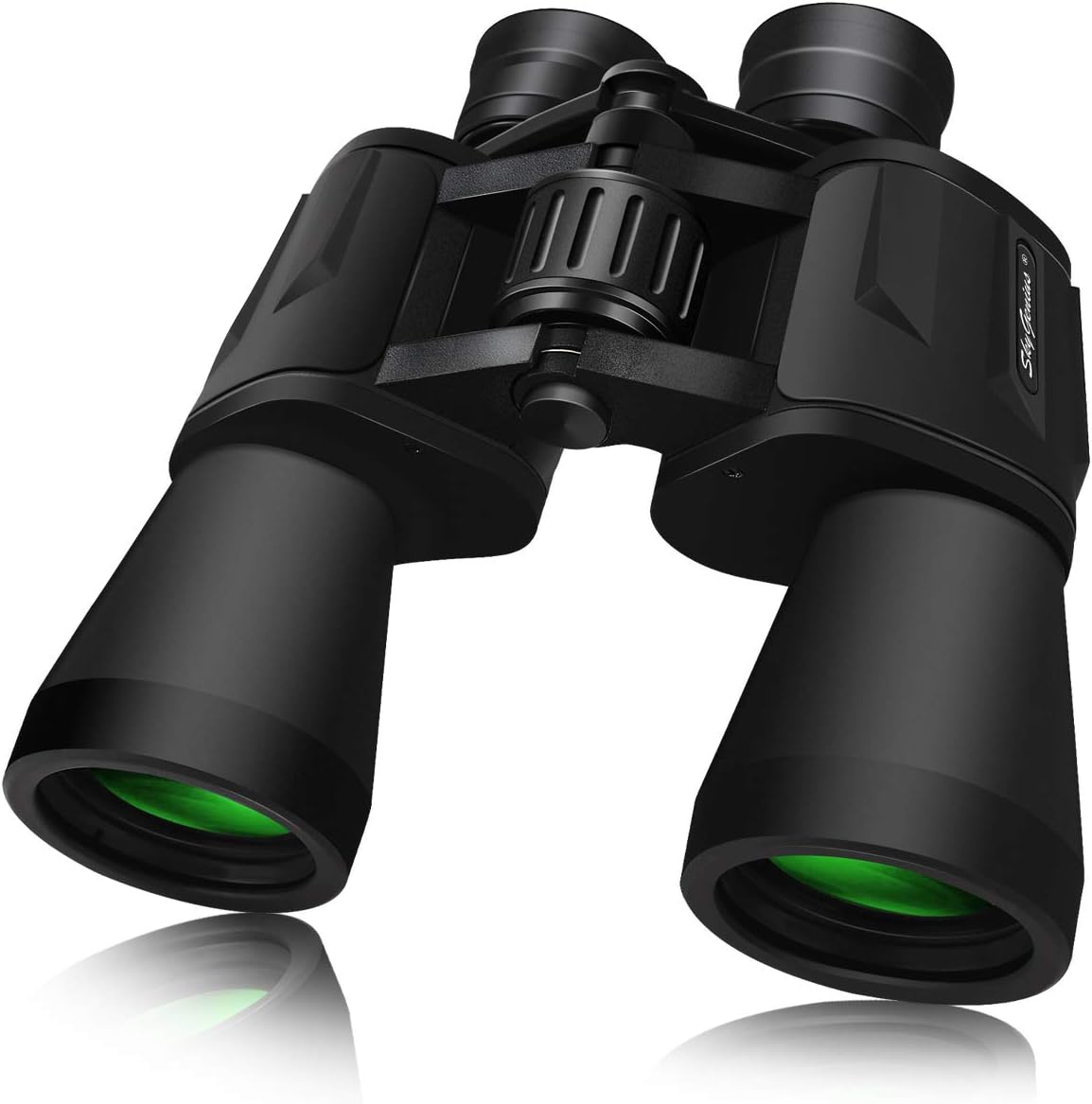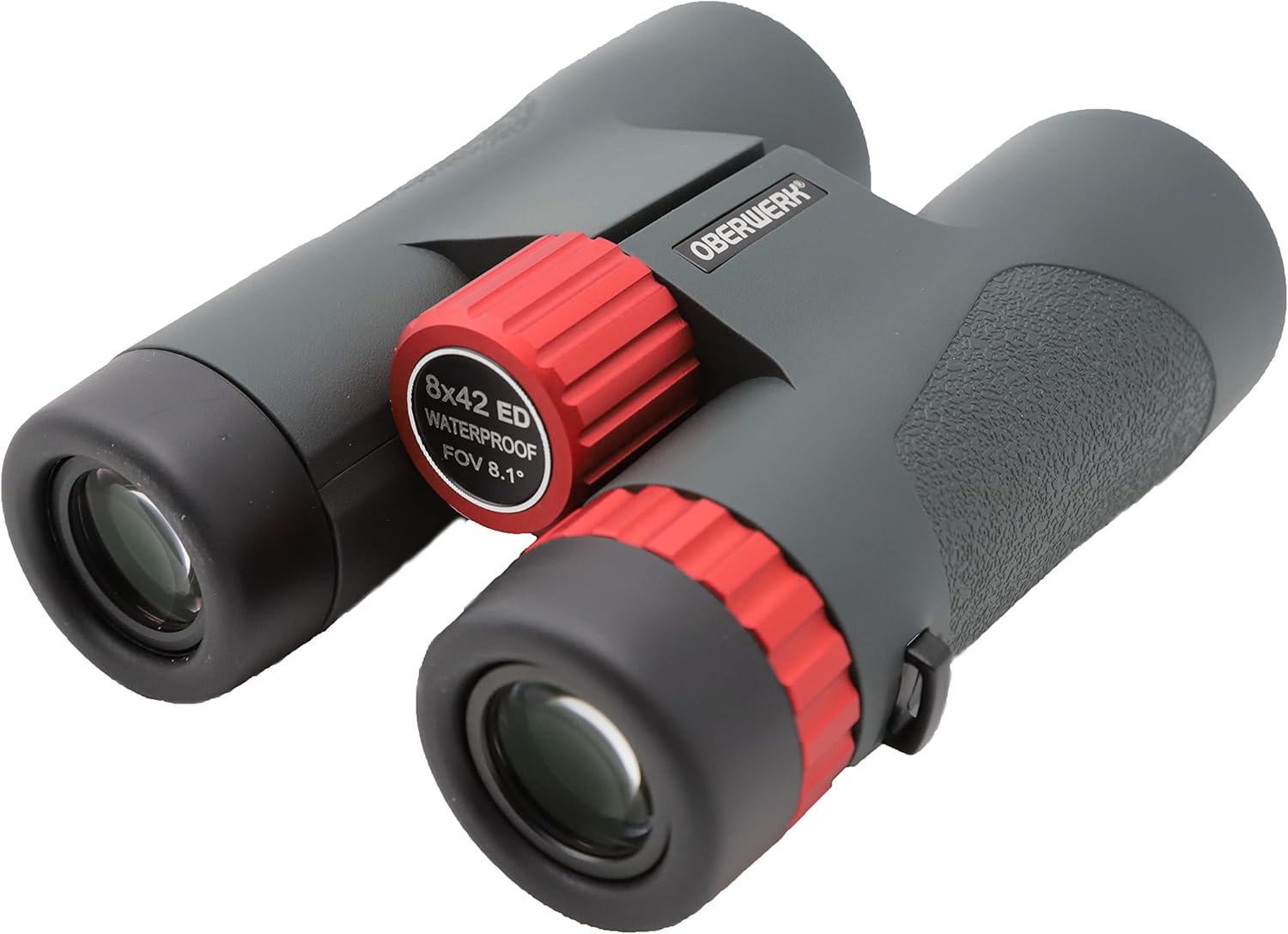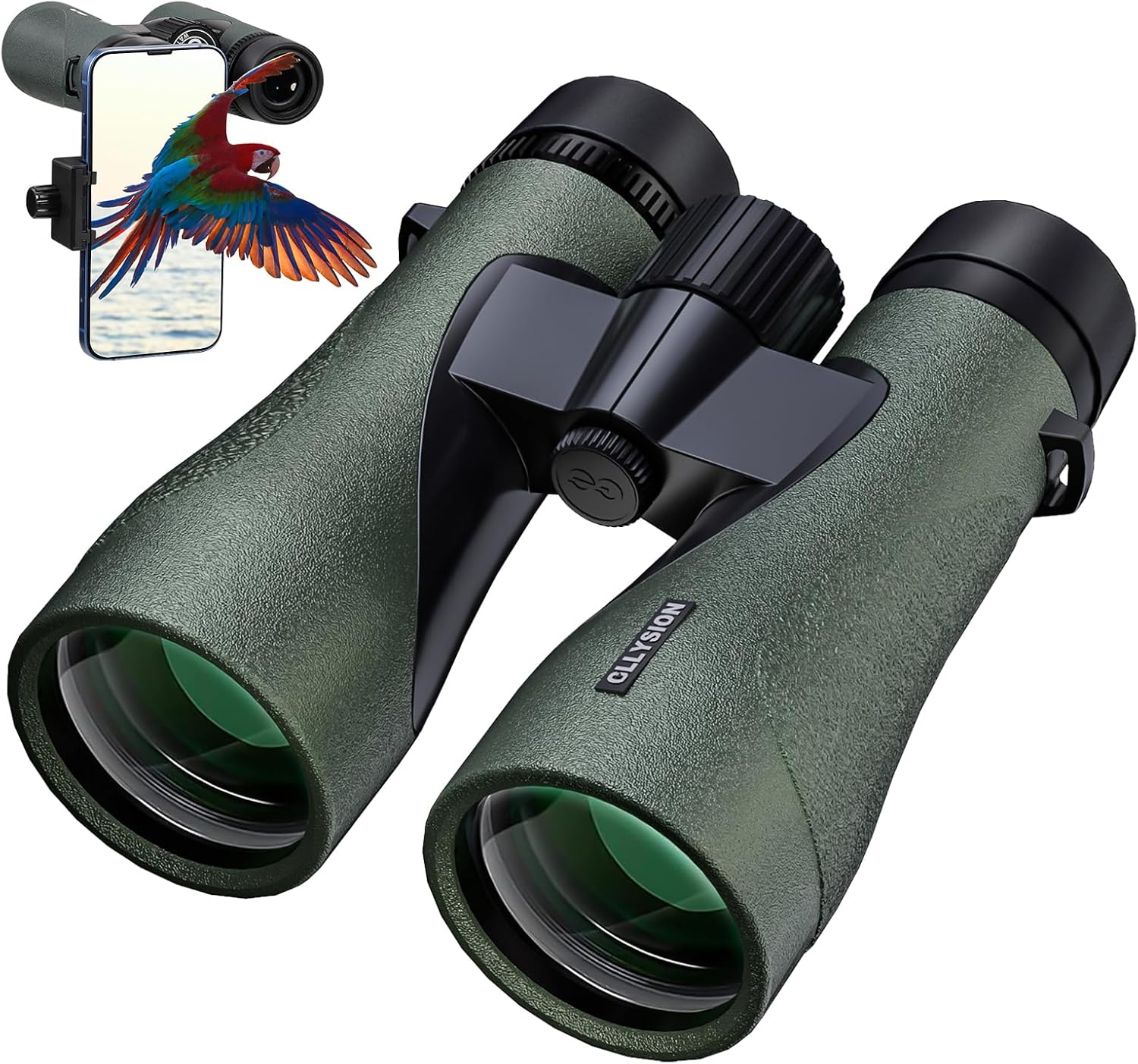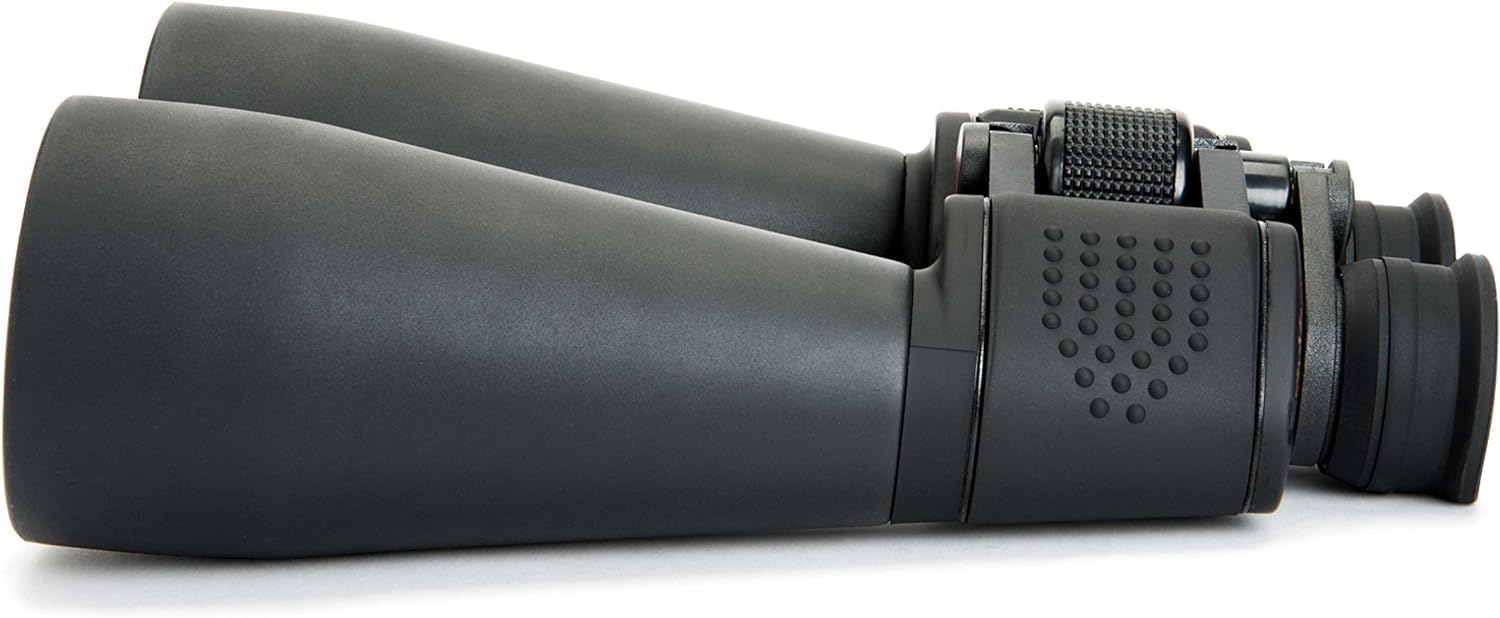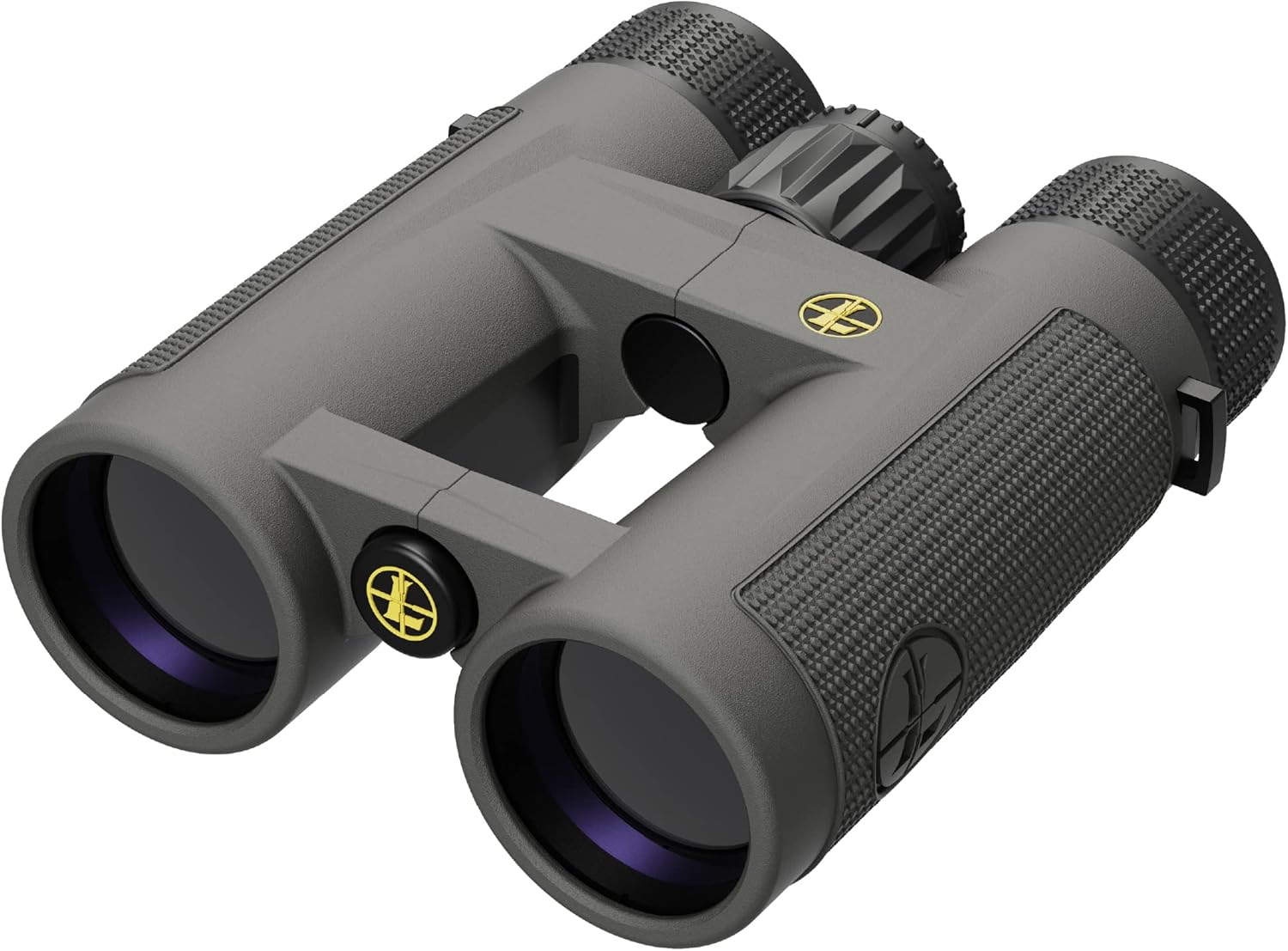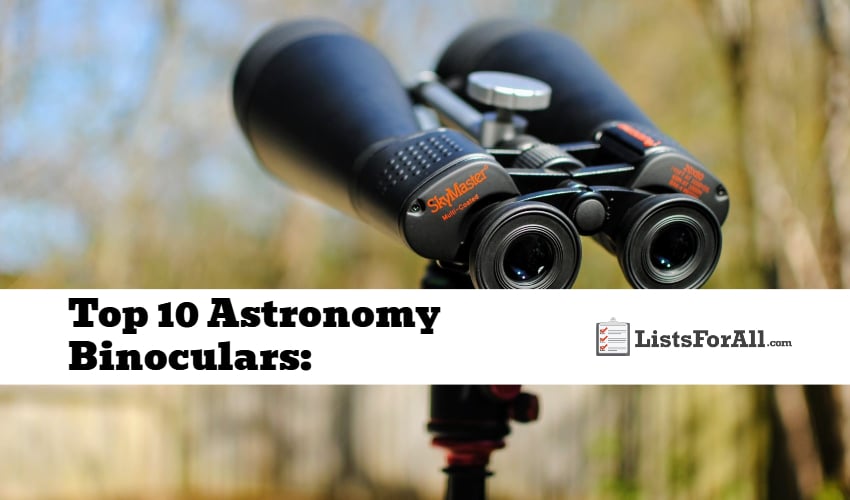
Best Astronomy Binoculars: Finding the Perfect Astronomy Binoculars for You
This list of the best astronomy binoculars will provide you with a great way to enjoy the stars and planets. Not only do astronomy binoculars provide a more immersive experience than staring up at the sky with your naked eyes, but they also make it easier to find specific objects in the night sky.
This list of the best astronomy binoculars will highlight the top options and will allow you to better appreciate the night-time sky. From giant binoculars to efficient travel-sized models, these are the top astronomy binoculars that offer excellent performance.
When you are finished with this list of the best astronomy binoculars, visit our lists of the best compact binoculars, best bird watching binoculars, and best night vision binoculars. These lists all offer some great content when it comes to binoculars.
Top 10 Astronomy Binoculars:
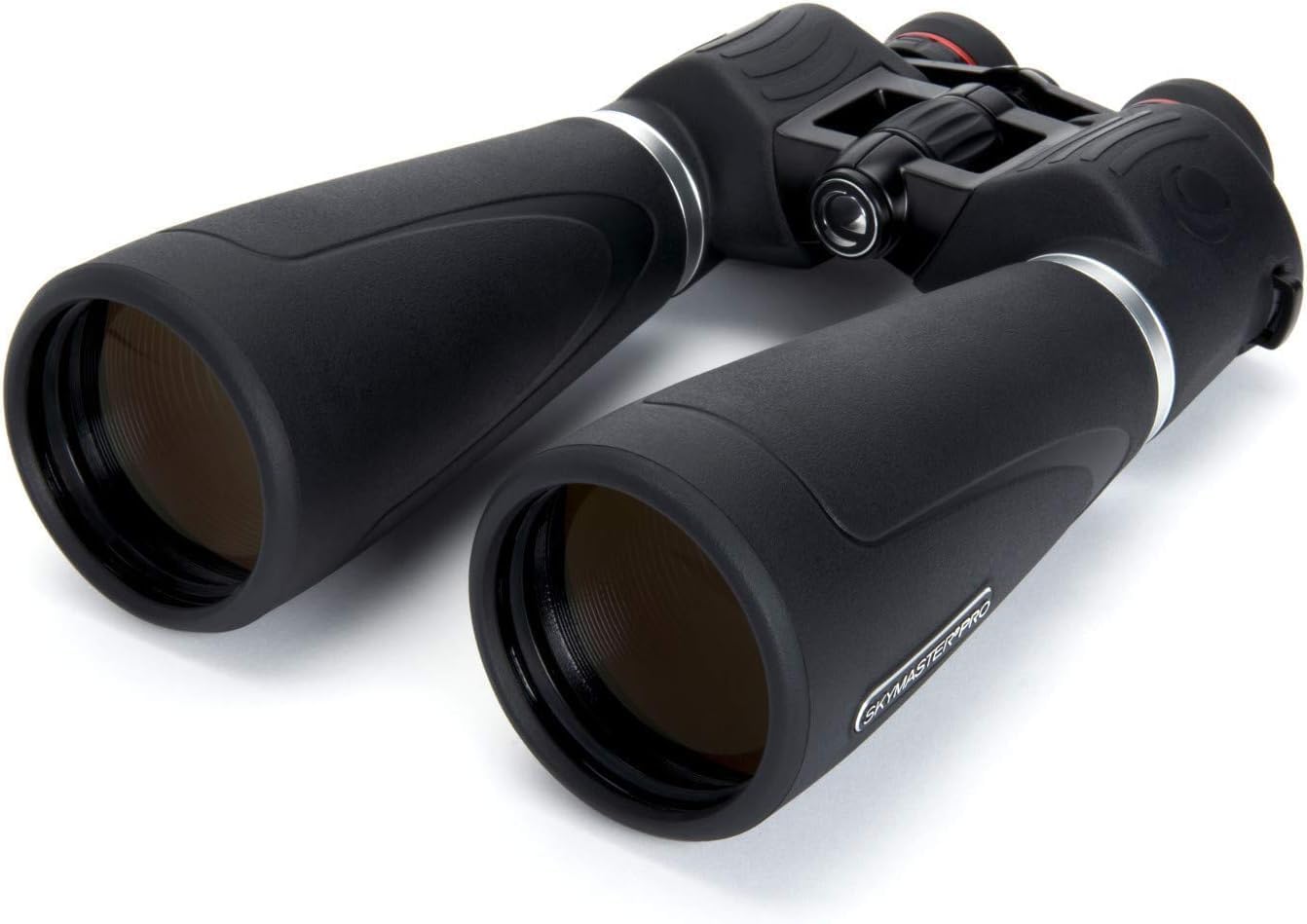
1. Celestron SkyMaster 15×70 Binoculars
Price: $279.95
About Astronomy Binoculars: The Celestron SkyMaster 15×70 provides 15x magnification with large 70mm objective lenses. It delivers bright, high-contrast views of celestial bodies. Ideal for stargazing and long-distance terrestrial viewing. A top pick for amateur astronomers.
2. Nikon A211 Action 10×50 Binoculars
Price: $119.00
About Astronomy Binoculars: These Nikon binoculars offer 10x magnification with 50mm lenses for wide-field viewing. Great for scanning star fields or observing the moon. Lightweight and easy to handle. Perfect for both skywatching and nature spotting.
3. ESSLNB Astronomy Binoculars
Price: $139.99
About Astronomy Binoculars: Featuring 20x magnification and 80mm objective lenses, these binoculars are built for deep sky viewing. They offer enhanced brightness and image clarity. Comes with a tripod adapter. A strong choice for serious night sky exploration.
4. Bushnell Falcon 10×50 Binoculars
Price: $52.94
About Astronomy Binoculars: The Bushnell Falcon offers affordability and versatility with 10x magnification and 50mm lenses. Great for casual stargazing and daylight use. Rubber grip ensures comfort and control. A solid option for beginners.
5. Vortex Optics Viper HD 8×42 Binoculars
Price: $489.00
About Astronomy Binoculars: These high-end binoculars deliver crystal-clear HD images with 8x magnification. The 42mm lenses gather ample light for low-light conditions. Great for stargazing and birdwatching alike. Premium optics with rugged build quality.
6. SkyGenius 10×50 Binoculars
Price: $49.99
About Astronomy Binoculars: SkyGenius offers affordability with excellent image clarity and a wide field of view. Its 10x magnification is perfect for lunar observations. Lightweight and easy to transport. Excellent entry-level astronomy binoculars.
7. Oberwerk 10×42 Ultra Binoculars
Price: $369.95
About Astronomy Binoculars: The Oberwerk 11×70 offers premium optics for those seeking powerful, clear stargazing experiences. Great for viewing deep sky objects. Solid construction and high light transmission. Ideal for serious binocular astronomers.
8. GLLYSION 12×50 HD Binoculars
Price: $109.86
About Astronomy Binoculars: These HD binoculars provide sharp visuals for nighttime or daytime use. The 12x magnification and 50mm lenses offer good balance between power and portability. Multi-coated optics enhance clarity. Excellent for general outdoor use and skywatching.
9. Celestron 71008 SkyMaster 25×70 Binoculars
Price: $109.00
About Astronomy Binoculars: Offering an impressive 25x magnification, these SkyMaster binoculars are perfect for observing planets and star clusters. Large 70mm lenses capture more light for better detail. Great for serious enthusiasts. Tripod recommended for stability.
10. Leupold BX-4 Pro Guide HD 10×42 Binoculars
Price: $699.99
About Astronomy Binoculars: Leupold’s BX-4 Pro Guide offers premium clarity with edge-to-edge sharpness and excellent low-light performance. Compact yet powerful with 10×42 optics. Perfect for late-night sky viewing or field use. Built for rugged durability and image excellence.
Editor’s Picks for the Best Astronomy Binoculars
With so many great options, a few astronomy binoculars stand out for their superior performance and value. The Celestron SkyMaster 15×70 binoculars are a clear editor favorite, offering a balance of power, clarity, and affordability that makes them ideal for beginner and intermediate stargazers. For more serious observers, the ESSLNB Astronomy Binoculars with 20×80 specs offer exceptional deep-sky capabilities and come tripod-ready. Lastly, the Leupold BX-4 Pro Guide HD stands out for its exceptional optics and rugged durability—perfect for those who want performance and portability in one premium package.
Frequently Asked Questions About Astronomy Binoculars
Are binoculars good for astronomy?
Absolutely. While telescopes offer more magnification, astronomy binoculars are easier to use, offer wider fields of view, and are more portable. They’re great for viewing the moon, star clusters, and even planets.
What magnification is best for astronomy binoculars?
Binoculars with magnification between 10x and 25x are ideal. Lower magnifications like 10×50 are great for wide sky views, while higher magnifications like 20×80 or 25×70 are better for detailed observations—though they may require a tripod for stability.
Do I need a tripod for astronomy binoculars?
If you’re using high-powered binoculars (15x magnification or higher), a tripod is strongly recommended. It helps reduce hand shake and allows for extended viewing sessions without fatigue.
Can I see planets with astronomy binoculars?
Yes, you can see bright planets like Jupiter, Saturn, Venus, and Mars with many astronomy binoculars. Higher magnification models will even show Jupiter’s moons and Saturn’s rings under good conditions.
What’s the difference between astronomy binoculars and regular binoculars?
Astronomy binoculars often have larger objective lenses (50mm or more) to gather more light, essential for nighttime viewing. They also prioritize magnification and image clarity under low-light conditions, unlike compact or general-use binoculars.
Tips for Choosing the Best Astronomy Binoculars for Stargazing
1. Prioritize Lens Size Over Magnification
Larger objective lenses (e.g., 70mm or 80mm) capture more light, which is essential for seeing faint stars and nebulae. While magnification matters, brightness and clarity are key for nighttime use.
2. Consider Your Comfort and Viewing Time
Handheld binoculars like the Nikon A211 10×50 are great for short sessions. If you plan to stargaze for extended periods, opt for a tripod-compatible pair like the Celestron 25×70 to reduce fatigue.
3. Look for Multi-Coated Lenses
High-quality coatings reduce glare and improve contrast, which is crucial for viewing celestial bodies in detail. Models like the GLLYSION 12×50 HD offer excellent coated optics at a reasonable price.
4. Choose the Right Weight for Your Needs
Heavier models provide better visuals but are harder to hold steady. Lightweight binoculars are easier to manage but may sacrifice some viewing power. Balance your need for power and portability based on your typical viewing conditions.
5. Check for Weather and Build Durability
If you plan on stargazing in varied outdoor conditions, choose binoculars with water-resistant or weatherproof housing like the Vortex Optics Viper HD or Leupold BX-4 Pro Guide HD.
Editor’s Picks: Top Astronomy Binoculars for Stargazing and Skywatching
While every option on this list is worth considering, a few binoculars truly rise above the rest based on clarity, value, and performance.
The Celestron SkyMaster 15×70 remains one of the best astronomy binoculars for beginners and intermediate stargazers thanks to its superb image brightness and value.
For those looking to explore deep-sky objects, the ESSLNB 20×80 Astronomy Binoculars offer powerful magnification and tripod support for a stable and immersive viewing experience.
Finally, the Leupold BX-4 Pro Guide HD is a top-tier pick for users wanting rugged durability and excellent image clarity for both astronomy and daytime viewing.
Frequently Asked Questions: Choosing the Best Astronomy Binoculars
Are binoculars a good alternative to telescopes for stargazing?
Yes. Astronomy binoculars are a fantastic way to get started with night sky viewing. They are lightweight, easy to use, and offer wider views than most beginner telescopes, making them perfect for scanning star clusters, the moon, and even planets.
What features should I look for in astronomy binoculars?
Focus on magnification (10x–25x) and objective lens size (at least 50mm). Larger lenses let in more light, which is crucial for nighttime viewing. Also look for multi-coated lenses and tripod compatibility for optimal performance.
Can you see planets with astronomy binoculars?
Yes, especially with models offering 15x or higher magnification. You’ll be able to see the moon’s craters, Jupiter’s moons, and even Saturn’s rings in the right conditions.
Do I need a tripod to use astronomy binoculars?
It depends on the magnification. For anything above 15x, a tripod is recommended to avoid hand shake and maintain clear, stable viewing.
What’s the difference between regular and astronomy binoculars?
Astronomy binoculars typically have larger objective lenses and are designed for low-light performance. This makes them better suited for viewing stars, planets, and other celestial objects than standard daytime binoculars.
Expert Tips for Buying the Best Astronomy Binoculars
1. Choose a Binocular with a Wide Field of View
Wider fields of view help you scan more of the night sky at once. Models like the Nikon A211 10×50 and SkyGenius 10×50 are great for locating constellations or sweeping star fields quickly.
2. Don’t Overlook Eye Relief and Comfort
If you wear glasses or plan on long viewing sessions, make sure your binoculars offer long eye relief and adjustable eyecups for maximum comfort during stargazing.
3. Use a Tripod for High-Magnification Models
Binoculars like the Celestron 25×70 or ESSLNB 20×80 are powerful but heavy. Mounting them on a tripod ensures steady images and a more enjoyable stargazing experience.
4. Check Weather Resistance
Night sky viewing often involves outdoor conditions. Choose binoculars with weatherproof or waterproof construction, such as the Vortex Optics Viper HD, if you’ll be stargazing in varying environments.
5. Balance Magnification and Portability
While high magnification is tempting, more power means more weight. If you’re hiking or traveling, something lighter like the GLLYSION 12×50 HD offers solid performance without added bulk.
Best Astronomy Binoculars Conclusion
There is a lot to consider when choosing the best astronomy binoculars for your needs, but if you take the time to find the perfect pair, you’ll be rewarded with amazing views of the night sky.
Whether you’re interested in stars, planets, galaxies, or nebulae, there’s a pair of binoculars out there that will let you see them all in breathtaking detail.
So get out there and start exploring the universe.
Is there astronomy binoculars that you think should be on this list but isn’t? Please feel free to share it below if so.

